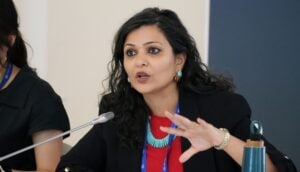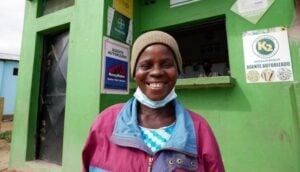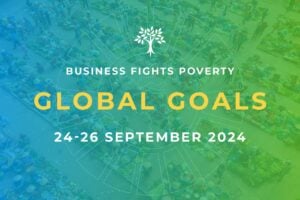Before we started our recent research on Project Nurture, we had thought of the partnership as a relatively straightforward, three-way relationship among The Coca-Cola Company, the Bill & Melinda Gates Foundation, and TechnoServe. Between 2010 and 2014, Coca-Cola and the Gates Foundation would contribute $11.5 million to TechnoServe, which would in turn build the capacity of more than 50,000 smallholder mango and passion fruit farmers to participate in the Coca-Cola juice supply chain in Kenya and Uganda.
By the time we completed our report, just released, we had come to realize that this impression barely scratched the surface.
First, bringing those farmers into Coca-Cola’s supply chain required the three core partners to work with lots of other players. Two of the Company’s independent bottling partners, which manufacture, package, and sell its juices. Two suppliers of mango and passion fruit puree. Three providers of agronomic and business skills training for smallholder farmers. Two banks that could extend credit for farmers interested in passion fruit production. An agricultural research institute that had developed improved passion fruit varieties. A range of nurseries that could cultivate and sell seedlings to farmers.
And second, bringing those farmers into Coca-Cola’s supply chain wasn’t even enough. The Project Nurture partners did not want farmers to become dependent on the Company – and even more importantly, they recognized that farmers could earn more money selling their fruit for fresh domestic consumption and for export. Fruit processing for juice is a valuable market channel primarily because it provides an outlet for slightly bruised or damaged fruit that would otherwise go to waste. So, into the project came players in the fresh domestic and export markets – traders, wholesalers, exporters, and retailers. The partners even brought in a competing juice business in Uganda that could purchase a variety of mango Coca-Cola did not use.
This is what The Coca-Cola Company, the Gates Foundation, and TechnoServe mean when they talk about taking “an integrated approach to strengthening the entire value chain.”
Hence the most important lesson that we at the CSR Initiative have learned from Project Nurture: the sheer number of players involved in making inclusive business models and value chains work – and the complexity of aligning their incentives and building their capabilities – require both time and a real professional skillset.
In our work, we call this building and strengthening inclusive business ecosystems. This is clearly a skillset that the Project Nurture partners possess. But we need many more Project Nurtures to match the scale of the business opportunity and the development need around the world. How can more companies, donors, NGOs, and governments acquire this skillset? What role can specialized consultancies play? How can regular forums for cross-sector dialogue, from the World Economic Forum to the Ugandan Presidential Investors Roundtable, help lay the groundwork? And will new platforms like the Southern Agricultural Growth Corridor of Tanzania and Ethiopia’s Agricultural Transformation Agency make it easier to get the next generation of Project Nurtures up and running?
Please share your experience and your vision!
This is a part of a 3-part series with The Coca-Cola Company, TechnoServe and Harvard Kennedy School’s CSR Initiative.









